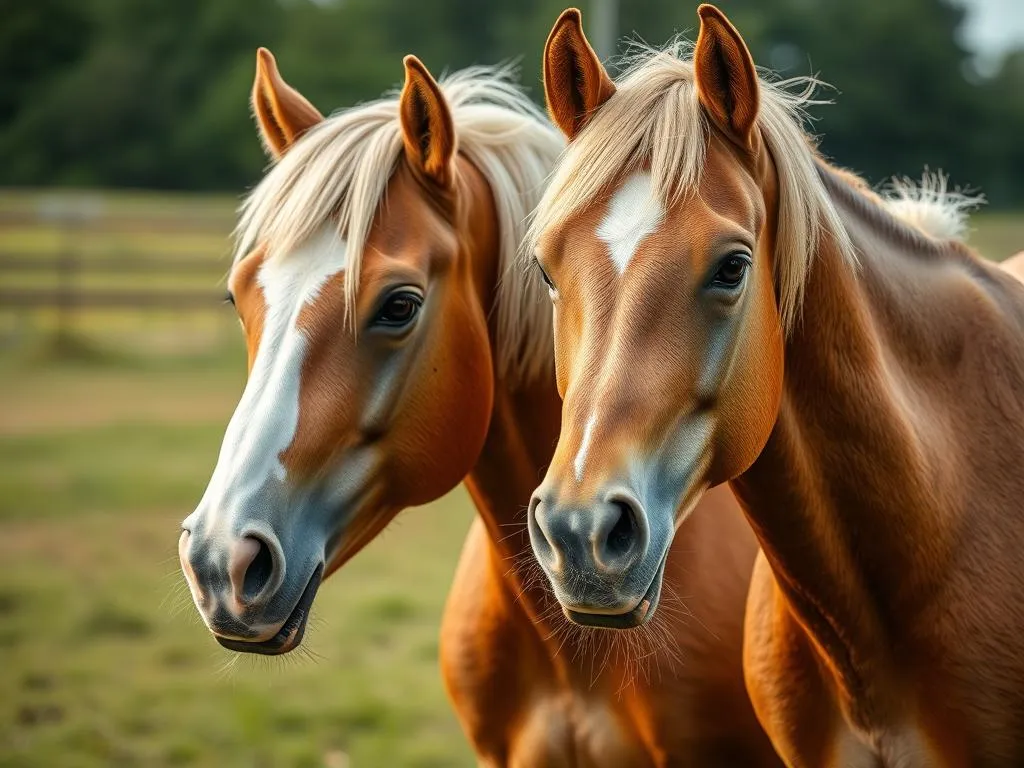
Introduction
When we talk about animal intelligence, we often find ourselves drawn into a fascinating debate: are horses smarter than dogs? This question dives deep into how we define intelligence in the animal kingdom. Intelligence in animals is not just about problem-solving skills; it encompasses various dimensions such as social intelligence, emotional understanding, and the ability to learn from experiences.
Understanding these various aspects of intelligence can significantly influence our relationships with these remarkable creatures. This article aims to explore and compare the intelligence of horses and dogs to shed light on their unique cognitive abilities and how they relate to human beings.
Understanding Animal Intelligence
What is Animal Intelligence?
Animal intelligence is a complex concept that varies across species. It can be defined as the ability to learn, adapt, and solve problems, often in relation to the environment. Different theories propose various frameworks for understanding intelligence in animals. Some emphasize cognitive skills, while others focus on social behaviors or emotional responses.
Types of Intelligence in Animals
-
Social Intelligence: This refers to the ability of animals to understand and interact with others in their social group. It includes recognizing social hierarchies and engaging in cooperative behaviors.
-
Problem-Solving Abilities: This type of intelligence is showcased through an animal’s capacity to navigate challenges and find solutions. It often involves reasoning skills and adaptability to new situations.
-
Emotional Intelligence: Animals possess the ability to understand and respond to emotional cues, both from their own species and from humans. This facet of intelligence influences bonding and communication.
How Intelligence is Measured
Researchers utilize various tests and assessments to evaluate animal intelligence. Common methods include:
- Maze Tests: Animals navigate through mazes that challenge their problem-solving skills.
- Social Learning Tasks: These assess how animals learn from observing others, highlighting social intelligence.
By employing these methods, scientists can gather insights into the cognitive abilities of different species, including horses and dogs.
Overview of Horses
History and Domestication of Horses
Horses have played a vital role in human history, from transportation to agriculture. They were domesticated around 4000 BC, transforming human mobility and labor. The partnership between humans and horses has evolved, with horses becoming integral to various cultures and economies.
Cognitive Abilities of Horses
Horses exhibit remarkable cognitive abilities, such as:
-
Problem-Solving Skills: They can learn to navigate obstacles and understand complex tasks, showing their capacity for reasoning.
-
Social Bonding and Communication: Horses communicate through body language and vocalizations, demonstrating a keen awareness of social dynamics within their herds.
-
Learning and Memory Capabilities: Studies show that horses can retain information and learn from experiences, allowing them to adapt to new environments and tasks.
Studies on Horse Intelligence
Research has shown that horses possess significant intelligence. One notable study revealed that horses can differentiate between emotional expressions in humans, indicating a level of emotional intelligence. Equine behaviorists have documented various instances of horses solving problems, such as opening gates or navigating mazes, underscoring their cognitive capabilities.
Overview of Dogs
History and Domestication of Dogs
Dogs hold a unique place in human society, having been domesticated from wolves over 15,000 years ago. Their roles have evolved from hunting companions to service animals, showcasing their versatility and intelligence.
Cognitive Abilities of Dogs
Dogs exhibit several impressive cognitive abilities, including:
-
Social Intelligence and Emotional Bonding: They excel in understanding human emotions and responding appropriately, often forming deep attachments with their owners.
-
Learning Styles and Obedience: Dogs are highly trainable and can learn commands and tasks through various methods, including positive reinforcement.
-
Problem-Solving Skills: Research indicates that dogs can solve puzzles and navigate challenges, showcasing their ability to think critically.
Studies on Dog Intelligence
Numerous studies have explored dog intelligence. One significant study demonstrated that dogs could understand human gestures and commands better than many other animals. Canine behaviorists have documented instances of dogs performing complex tasks, further emphasizing their cognitive capabilities.
Comparative Analysis
Horse vs. Dog Intelligence: Key Differences
When comparing horses and dogs, notable differences emerge:
-
Social Intelligence: While both animals demonstrate social intelligence, dogs excel in understanding human social cues. Horses, on the other hand, showcase strong social bonds within their herds but may not interpret human emotions as effectively.
-
Problem-Solving Capabilities: Both species display impressive problem-solving skills, but dogs often outperform horses in tasks that require understanding human commands and cues.
Similarities Between Horses and Dogs
Despite their differences, horses and dogs share some similarities:
-
Emotional Intelligence and Bonding: Both species form strong emotional connections with humans, facilitating meaningful relationships.
-
Cooperative Behaviors: Both horses and dogs display cooperative behaviors, whether in a herd or working alongside humans, showcasing their ability to collaborate.
Contextual Intelligence
The intelligence of both species is heavily influenced by their environment and training. Horses may perform better in tasks involving spatial awareness, while dogs may excel in tasks requiring social understanding. The training methods employed can also shape their cognitive abilities, highlighting the importance of context.
The Impact of Environment and Training
Role of Training in Animal Intelligence
Training plays a pivotal role in enhancing animal intelligence. Different training methods can either foster or inhibit cognitive development. For instance, positive reinforcement encourages learning and adaptability, while negative reinforcement may lead to fear and reluctance to engage.
Environmental Factors
The environment in which an animal is raised significantly impacts its intelligence. Socialization, exposure to various stimuli, and the richness of their surroundings can enhance cognitive development in both horses and dogs.
Case Studies
Specific examples of trained animals underscore their intelligence. Trained search and rescue dogs demonstrate a high level of problem-solving and social intelligence, while trained therapy horses exhibit emotional intelligence by connecting with individuals in need.
Practical Implications
Choosing the Right Animal for Your Lifestyle
Understanding the intelligence of horses and dogs can guide potential owners in choosing the right animal. Factors such as lifestyle, living environment, and the desired companionship level can influence this decision.
Enhancing Human-Animal Relationships
Recognizing the unique intelligences of horses and dogs can foster better relationships. Engaging with animals in a manner that respects their cognitive abilities can enhance communication and companionship.
Future Research Directions
Future research could focus on deeper comparisons of horse and dog intelligence, exploring how different breeds within each species exhibit varying cognitive capabilities. Additionally, examining the impact of training methods on intelligence across species could provide valuable insights.
Conclusion
In summary, the question are horses smarter than dogs does not yield a straightforward answer. Each species showcases its unique form of intelligence, influenced by historical roles, cognitive abilities, and environmental factors. Horses exhibit remarkable problem-solving skills and emotional intelligence, while dogs excel in social understanding and obedience.
Recognizing the distinct intelligences of both horses and dogs enriches our understanding of these animals and enhances the human-animal bond. Engaging with them in ways that acknowledge their capabilities can lead to deeper connections and more fulfilling relationships. Both horses and dogs offer unique gifts to humans, and appreciating their different forms of intelligence can only enhance the joy they bring to our lives.









